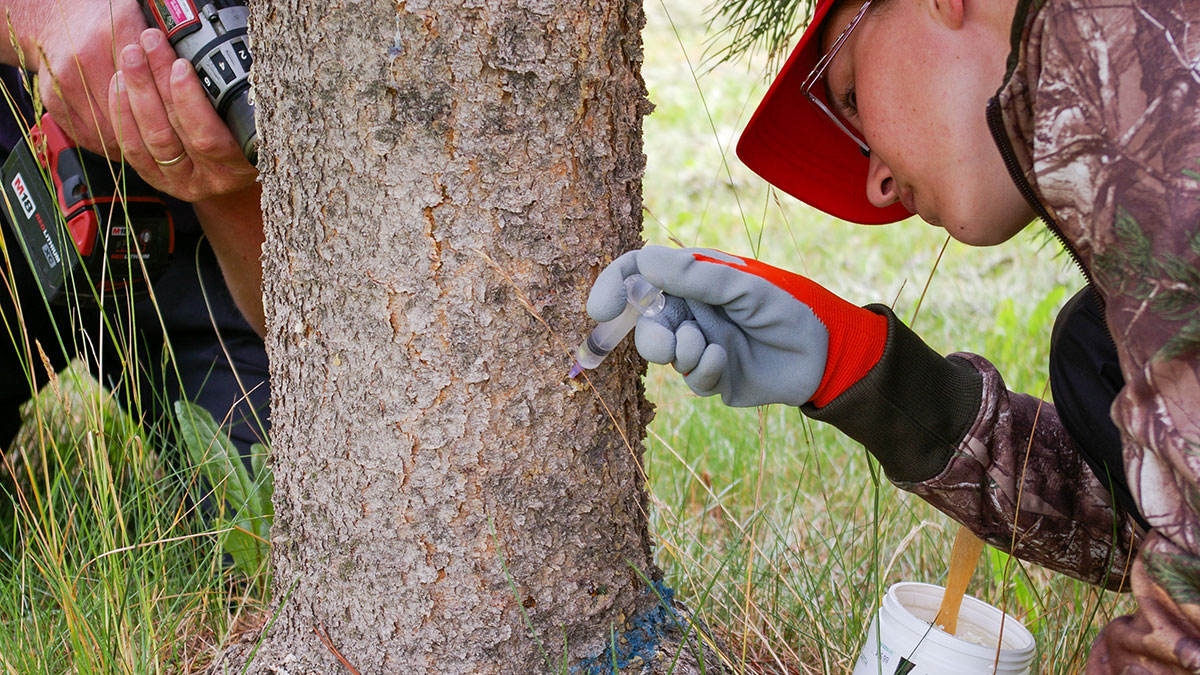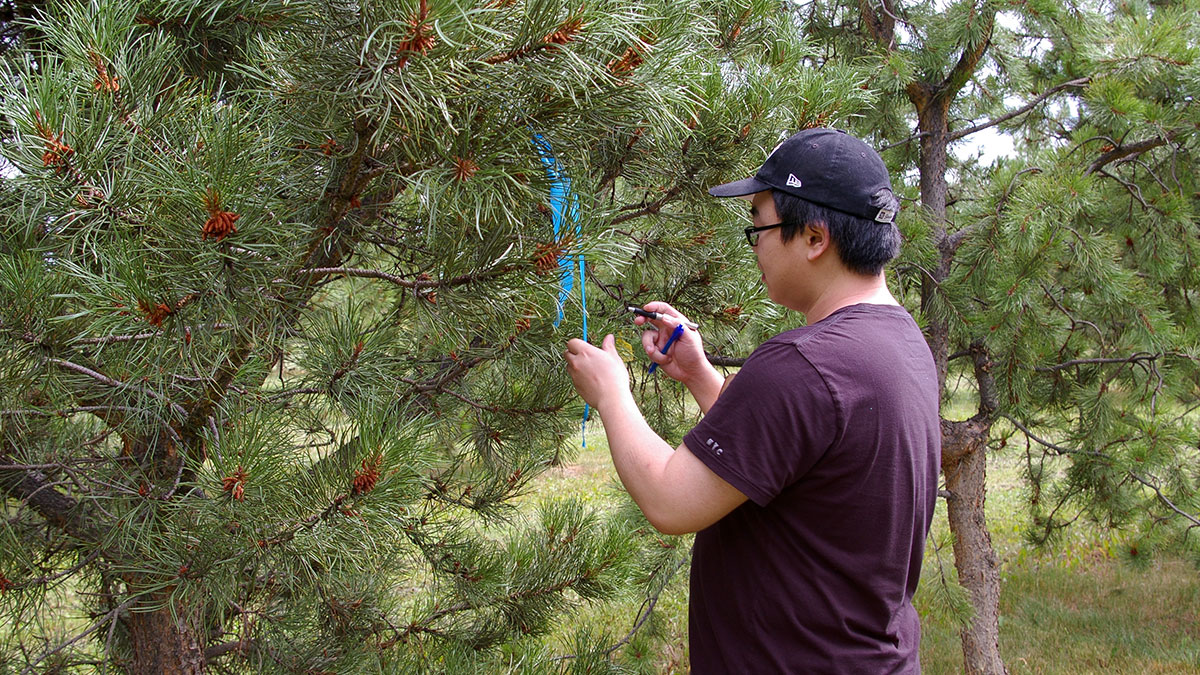 Supplied
SuppliedAn injection of new federal funding into poplar seedlings and greenhouses will help determine which trees cope with climate change in Alberta.
A tree improvement project is one of nine University of Alberta labs to collectively receive more than $2 million in funding from the federal government last week.
Barb Thomas, associate professor of renewable resources at the Faculty of Agricultural and Life Sciences, received about $135,000 for lab equipment and field supplies to help advise the Alberta forest industry on trees that are better adapted to climate change. Having worked in industry for almost 20 years as a geneticist heading a poplar breeding program, Thomas now helps prepare students for work in forestry and reclamation.
Thomas, the university’s Industrial Research Chair focuses on tree improvement, a process that involves collecting seeds from parent trees in the wild and testing them in progeny trials for performance. In trials, growth speed and wood volume usually determine how much of the improvement can be attributed to genetics. The new federal grant will add to funding from 10 forestry companies and the Natural Science and Engineering Council of Canada which has allowed Thomas to develop her lab since its inception in September 2014.

The nine grant recipients were invited to the university to attend the funding announcement by Canada’s Minister of Science Kristy Duncan.
“I think we were all a little bit shell shocked at how open and warm and inviting (Duncan) was to hearing about the needs at the university,” Thomas said.
Thomas and her students conduct progeny trials throughout the province but also spend time speaking with the provincial government. Thomas said their goal is to pull information from research to help the Albertan industry and government cope with global warming, particularly in the area of reforestation, by choosing trees that are better adapted to climate change.
Tree improvement may be an applied field but it stems from genetics, something that drew Thomas to this work.
“I’ve always been interested in the whole area of genetics whether it was plants, animals, or people.” she said. “I like the combination of the fact that I could marry genetics with going outside in the world of forestry.”
Management and Utilization of Forest Genetic Resources is a new course Thomas is excited to be teaching. The class travelled to the Alberta Tree Improvement Seed Centre on March 19 to see the seeds used for reforestation in the province, as well as the centre’s seed orchards and nurseries.
“Most of these students, even though they’re in fourth or fifth year, haven’t been to this facility before so it’s going to be a lot of fun.” Thomas said.
Now Thomas works with both the forest industry and the oil industry, helping to connect the two locally so the right trees are used in reclamation. Thomas said it’s important to pass on her experiential knowledge to students so they can help industries make important decisions about tree improvement in the future.
Though she relishes the opportunity to get back in the classroom Thomas misses the weekly trips to the field.
“Any day that I can get out in the field is a good day,” she said. “Every trip to the field has a new adventure, you see something new.”




